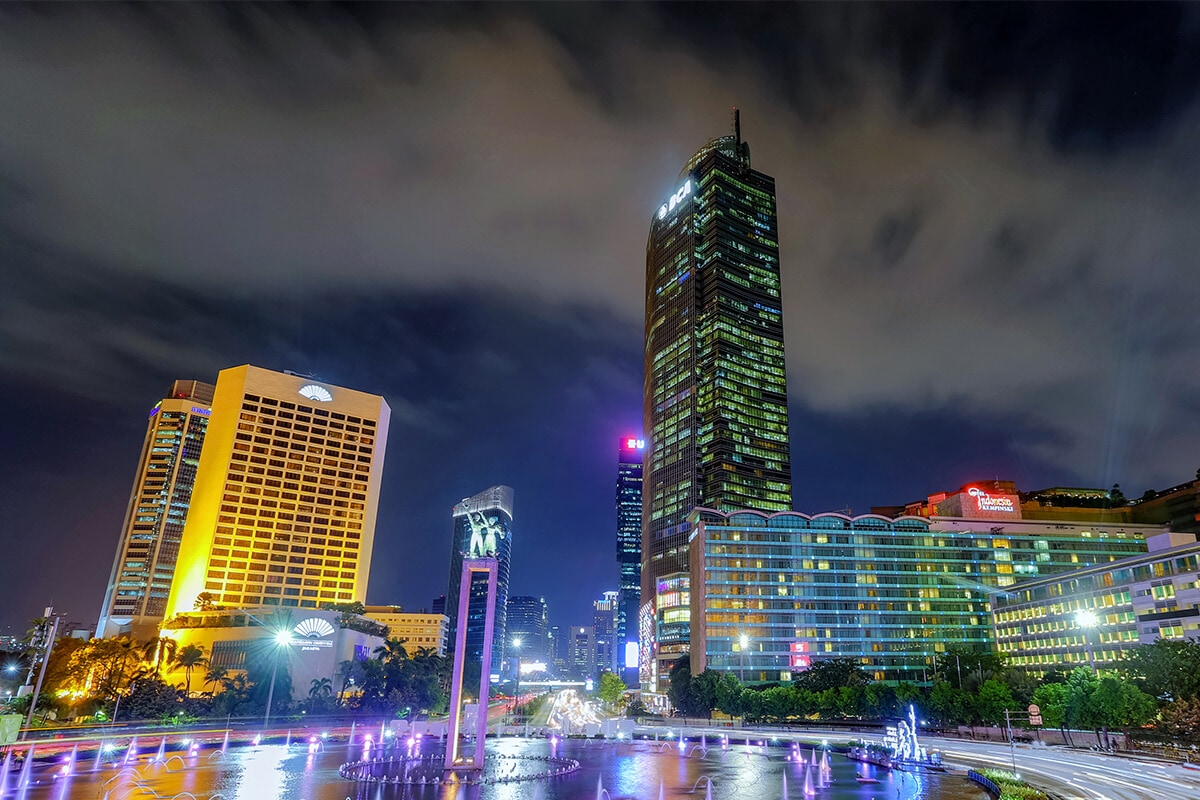SERVICE
Product Registration
Service Areas
According to the regulation, Product registration in Indonesia is an obligation for companies that want to distribute their products legally. It is also important for the company to register the products in order to gain market trust.
Food and Beverage Registration
Before being distributed in the local market, all food and beverage products must be registered according to the regulation and passed through a certification conducted by the Indonesian National Agency for Drug and Food Control (Badan Pengawas Obat dan Makanan, or BPOM). If the product passes the certification process, BPOM will issue the permit or known as izin edar BPOM MD.
Food and Beverage Registration Requirements:
- Letter of Appointment (LoA)
- Certificate of Free Sales (CFS)
- Good Manufacturing Practice (GMP)
- Master of Formula
- Packaging Design
- Company Deed and Ministerial Decree
- Business Registration Number (NIB)
- Business License
- Location Permit/Domicile Certificate
- Commercial License
- Company Tax Registry (NPWP)

Food and Beverage Registration Procedures:
As part of our procedure, companies that would like to take part in the Trade Mission are required to provide several details about their company, such as:
- Inspection and Certification by BPOM
This procedure is mandatory prior to BPOM registration, the importer must prove their ownership of a warehouse, the minimum lease for the warehouse is 2 years. In this process, the importer must also obtain SMKPO certification. - BPOM Account Registration
Registration into the BPOM system to obtain an e-Reg account. - Product Registration
Pre-registration (consultation and product categorization), registration, conduct evaluation, assess findings and do revisions. - Approval
BPOM approves the registration and issues Distribution License/Izin Edar to the importer. The license is valid for 5 years.
Cosmetics Registration
The cosmetics industry is commonly associated with women. With more than 150 million of the population being women, Indonesia is projected to be the fifth largest cosmetics market in the world within the next 10-15 years. This is such an exciting opportunity for international cosmetics manufacturers to take part in the Indonesian market. Before doing so, it is crucial to note that they must first acquire a license from the National Agency of Drug and Food Control (BPOM).
Before distributing cosmetic and beauty products in Indonesia, you must register the products for the BPOM Distribution License. To ensure a succesfull cosmetic registration process, you have to meet quality, safety, labeling, and claim requirements. The applicant must also provide several supporting documents such as a business license, API-U (import identification number), and responsible technical person. Cosmetic registration in Indonesia takes approximately 1.5 – 2 months. However, it can be affected by several factors.
Cosmetics Registration Requirements:
- Incorporation documents from the importer.
- Import license from the importe (In Indonesia, it is known as Angka Pengenal Impor).
- A copy of the cosmetic manufacturer’s Good Manufacturing Process (GMP) certificate (legalized by the Indonesian Embassy of the manufacturer’s country).
- Certificate of free sales (issued by the governing body of the principal’s country and legalized by the Indonesian Embassy of the manufacturer’s country).
- A Letter of Appointment from the principal to the importer and the applicant of the registration.
- Label of the product, written in Bahasa Indonesia, which includes; the product name, product function, application method, composition, manufacturer, name and address of the importer, batch number, net weight, expiration date, and any warnings regarding the ingredients of the product.
Cosmetics Registration Procedure
There are several procedures in cosmetics registration. First, the applicant must prepare all the required documents. Second, the applicant must submit the documents alongside a sample of their product to the BPOM. Upon the submission of their registration documents and the product, the applicant must complete the service fee to the BPOM. After the submission is verified and accepted, the applicant will obtain the cosmetic registration certificate.
SERVICE
Business SetupEPC Service
Sales Support
Market Analysis
Business Matchmaking
Product Regristration
INVESTMENT OUTLOOK
Business LocationBusiness Opportunity
Economic Growth
Political Stability
Domestic Market
Natural Resources
Demographic
Destination



Medical Device Registration
In Indonesia, the health sector is heavily prioritized by the government. The production of medical devices by Indonesian companies steadily rises over the years. As the demand increases, it is not possible for local producers to provide for all of them. This is why Indonesia becomes an exciting market for international medical device manufacturers. Before putting their products in the market, it is important to note that Indonesia has a strict and complex medical device registration procedure. At Double M, we offer the service of assisting our clients register their medical devices to the Ministry of Health.
Entrepreneurs wishing to trade medical devices in Indonesia must prove that they are in possession of several licenses before going through the medical device registration in Indonesia with the Ministry of Health. Keep in mind that Foreign companies cannot distribute medical products in Indonesia unless they establish a limited company with direct foreign investment (PT PMA) or find a local distributor.
Medical Device Registration Procedures:
After all the documents are prepared, these are the procedures of registration:
- Login to OSS RBA account
- Upload registration documents
- Complete fee payment to the government
- Issuance of medical device license. The license is valid for 5 years
Medical Device Registration Requirements
- Company Documents
Business Identity Number (NIB), Company’s Tax ID (NPWP), Medical Device Distribution License (IDAK) - Administrative Documents
Free Sales Certificate, ISO 13485 certificate (for imported products) - Dossier from Manufacturer
Dossier from manufacturer, in accordance to the ASEAN Common Submission Dossier Template (CSDT) which includes:
a. Executive Summary, b. Device Labeling, c. Detailed Manufacturer Information, d. Essential Principles of Safety, e. Design Verification, f. Risk Analysis, g. Method of Destruction, h. Quality Management Certification, i. Market History Proof, j. Letter of Authorization (LoA),

Halal Certification Indonesia
The Indonesian Government issued Regulation No. 33 dated 17 October 2014, also known as the Halal Law 2014, concerning the Halal Products Guarantee. Halal certificates in Indonesia acts as a declaration to prove that the products follow the islamic Sharia law. A company has to provide a written application and several supporting documents in order to obtain a halal certificate which will be valid for four years.
A large majority of Indonesia’s population are Muslims. For foreign investors and business owners, it is crucial to know that Muslims in Indonesia commonly prefer to consume products that are certified as halal. As a result, registering your products for halal certification is a must.
In Indonesia, the responsibility to verify halal products is held collaboratively by Lembaga Pengkajian Pangan, Obat-obatan, dan Kosmetika Majelis Ulama Indonesia Majelis Ulama Indonesia (LPPOM MUI), Badan Penyelenggara Jaminan Produk Halal (BPJPH), and Lembaga Pemeriksa Halal (Halal Audit Institution)
Halal Certification Requirements:
- Applicant data: Business ID Number. If the applicant does not have a Business ID number, other documents such as Tax ID Number (NPWP), SIUP, IUMK, IUI, and NKV are allowed as substitutes.
- Name and type of products
- Ingredient of products: main and additional ingredients
- Product processing procedures, which includes its purchase, receival, packaging, storage of its ingredients and final product.
- Halal Assurance System (JSH) documents, which is a certification with a ranking system ranging in A, B, and C. These three types descend based on the quality determined in the audit process.
Halal Certification Procedure:
There are several procedures of halal certification in Indonesia. First, the applicant must submit their documents. Second, the submitted documents will be verified by the BPJBH to ensure that they are authentic and complete. Upon successful verification of the documents, the potential halal product will be tested by the LPH. After that, the MUI will determine whether the product meets the halal criteria in a Fatwa Halal court session. Should the product pass all the required criterias, the halal certificate will be issued by BPJPH. Once your product is certified as Halal, you will be eligible to put this stamp on your packaging. It is important to know that the Halal certification’s logo has been renewed recently.
Trademark Registration
Registering your trademark provides more legal protection to the brand or business and would give you exclusive rights to use the mark. By registering a trademark in Indonesia, you gain exclusive rights to your business logos, symbols, and branding. The validity term of trademarks in Indonesia constitutes 10 years from the filing date. Registration may be renewed for consecutive ten-year periods an unlimited number of times.
A trademark is defined as pictures, name, words, letters, numbers, and any sequence of them that has a differentiation factor that can be used in trades of products and/or services. In Indonesia, trademark certifications are in effect for 10 years and can be extended in the tenth year for the same license period.
Trademark Registration Requirements::
- Etiquette/Trademark Label
- Signature of the applicant
- Recommendation Letter and Statement Letter for Small to Medium Enterprises (UMKM)
Trademark Registration Procedures:
There are several procedures for trademark registration in Indonesia. First of all, you must have an account on the official web portal for trademark registration in Indonesia. After the account registration is successful, you can click “Add” to make a new submission. After that, you can order a billing code and specify the type and class of trademark you wish to register. Upon the successful order of a billing code, you will be asked to complete the payment according to the bills received on the SIMPAKI app. In the final stages, you will be asked to fill the form and upload all the required documents. If your application is approved, your trademark will be registered in Indonesia.
SNI License Registration
The SNI license in Indonesia, or Standar Nasional Indonesia is a certification proving that the company’s products and services are meeting the minimum regulatory level of quality. SNI is the only standard that is applied to products and services nationally in Indonesia and is used to determine the conformity of the standard quality of a product. The most crucial part of the process of acquiring an SNI license is the certification. Depending on the type of the product, there are several schemes for issuing the license.
Standar Nasional Indonesia or SNI is a license in Indonesia that certifies the quality of the products being sold in the country. It is important to note that the SNI license registration process in Indonesia is organized collaboratively by Badan Standardisasi Nasional (BSN), Komite Akreditasi Nasional (KAN), and Lembaga Sertifikasi Produk (LSPro). The ultimate aim is to protect the consumer, allowing them to consume products with adequate standards of safety and quality.
List of SNI-Mandatory products in Indonesia:
- Food: mineral water and packaged drinks, biscuits, salt, instant coffee, cooking oil, wheat flour
- Transportation: vehicle tyres, helmet, bike
- Electricity: batteries, cable, fan and air conditioner, iron, refrigerator and washing machines, light switch
- Household items: liquefied petroleum gas (LPG), ceramic and melamine cutlery, seated closet, gas stove, electric toys, cloth, children and babies clothing
SNI Registration Documents :
- Data of Business Operators
Business ID Number (NIB), Tax ID Number (NPWP), and Importer Identification (API). - nformation about the product
Name and address of producer and exporter, name and material of the product. - Process of production
Purchasing, reception, purchasing, storage, processing, packaging, distribution. - ISO 9001
ISO 9001: Quality Management System (QMS) certificate certified by KAN or certificate from other (QMS Institution recognized by KAN.
 MULTIVESTINDO
MULTIVESTINDO